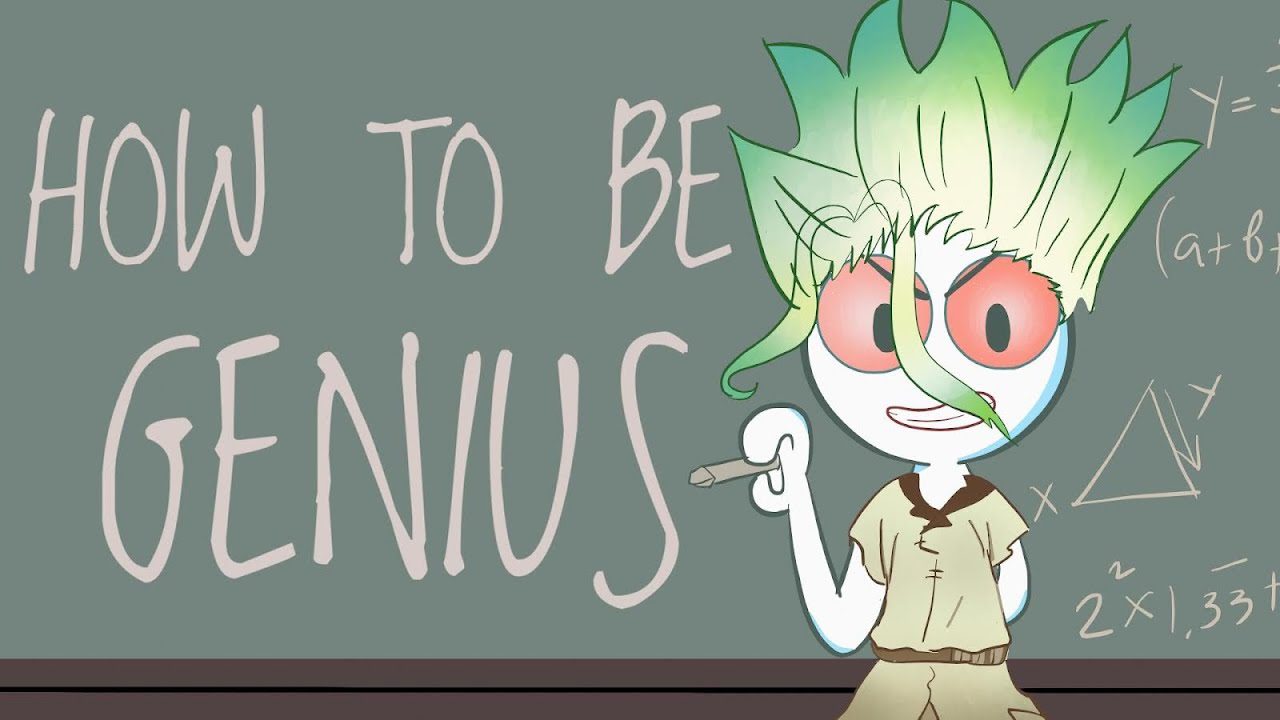7 Ways To Unlock Your Genius [7 Mil BONUS]
How to be a genius? When you hear the word “genius”, what do you think of? We generally think of people with remarkable achievements in areas of art, music, and science far beyond that of anyone else. However, scientific research into people with notable achievements reveals some surprising traits that anyone can learn from, including you! Turns out “genius” is a trait that anyone can nurture. So here are a ways to unlock your genius.
Speaking of geniuses, did you know that there are a few types of intelligence? Watch this video to find out which type are you: https://youtu.be/q_bU9x36FAQ
Writer: Brian Cham (new writer)
Script Editor: Sid Thompson
Script Manager: Kelly Soong
VO: Amanda Silvera
Animator: Aury
YouTube Manager: Cindy Cheong
References
Azoulay, P., Graff-Zivin, J., Uzzi, B., Wang, D., Williams, H., Evans, J. A., … & Guinan, E. C. (2018). Toward a more scientific science. Science, 361(6408), 1194-1197.
Barabási, A. L. (2018). The Formula: The Universal Laws of Success. New York: Little, Brown and Company.
Basak, C., Boot, W. R., Voss, M. W., & Kramer, A. F. (2008). Can training in a real-time strategy video game attenuate cognitive decline in older adults? Psychology and Aging, 23(4), 765–777. https://doi.org/10.1037/a0013494
Dweck, C. S. (2006). Mindset: The New Psychology of Success. New York: Random House.
Feist, G. J. (2014). Psychometric Studies of Scientific Talent and Eminence. The Wiley Handbook of Genius, 62–86. doi:10.1002/9781118367377.ch4
Granic, I., Lobel, A., & Engels, R. C. M. E. (2014). Benefits of Playing Video Games. American Psychologist, 69(1), 66-78.
Haslam, S. A., Adarves-Yorno, I., & Postmes, T. (2014). Creativity is Collective. Scientific American, 25(4), 30-35.
Heilman, K. M. (2016). Possible brain mechanisms of creativity. Archives of Clinical Neuropsychology, 31(4), 285-296.
Hertzog, C., Kramer, A. F., Wilson, R. S., & Lindenberger, U. (2009). Fit body, fit mind?. Scientific American Mind, 20(3), 24-31.
Jenkins-Friedman, R. (1982). Myth: Cosmetic use of multiple selection criteria! Gifted Child Quarterly, 26(1), 24–26. https://doi.org/10.1177/001698628202600108
Mussel, P. (2010). Epistemic curiosity and related constructs: Lacking evidence of discriminant validity. Personality and Individual Differences, 49(5), 506-510.
Subotnik, R. F., Olszewski-Kubilius, P., & Worrell, F. C. (2012). Nurturing the young genius. Scientific American Mind, 23(5), 50-57.
Wai, J., & Putallaz, M. (2011). The Flynn effect puzzle: A 30-year examination from the right tail of the ability distribution provides some missing pieces. Intelligence, 39(6), 443-455.













